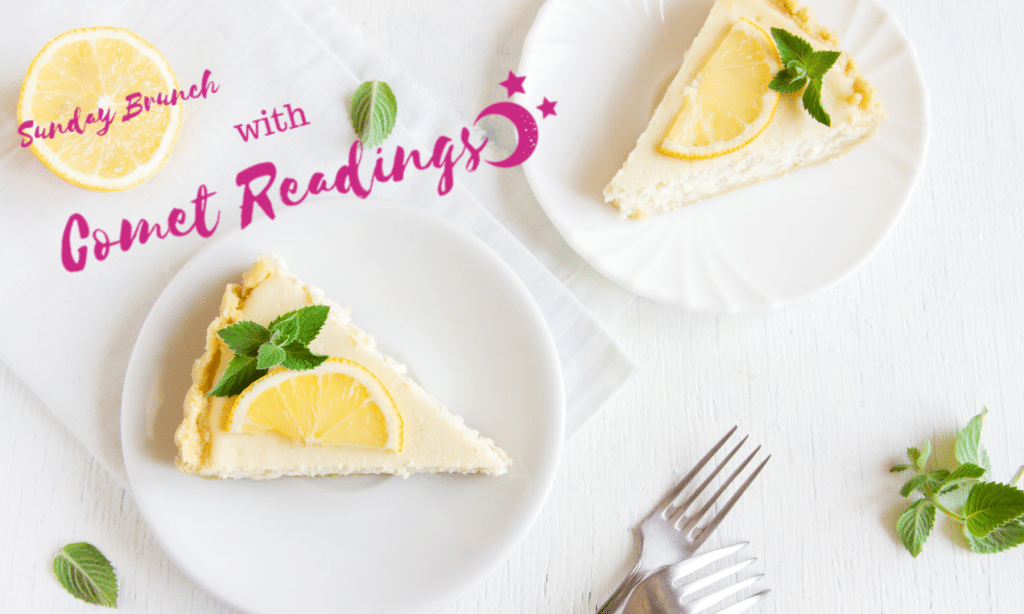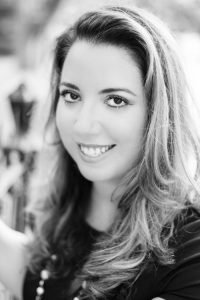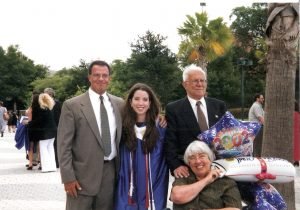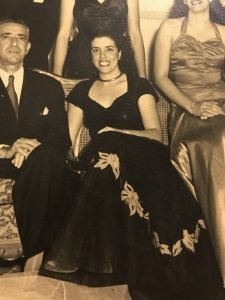
Sunday Brunch with...Chanel Cleeton
Happy Sunday!
I discovered Chanel Cleeton after reading her last novel, Next Year In Havana, which completely bewitched me. This historical novel was so intriguing and touching, and luckily not a standalone. So, while waiting for her new book, let’s enjoy her company today.
About Chanel…
Chanel Cleeton is the New York Times and USA Today bestselling author of Reese Witherspoon Book Club pick Next Year in Havana and When We Left Cuba. Originally from Florida, Chanel grew up on stories of her family’s exodus from Cuba following the events of the Cuban Revolution. Her passion for politics and history continued during her years spent studying in England where she earned a bachelor’s degree in International Relations from Richmond, The American International University in London, and a master’s degree in Global Politics from the London School of Economics & Political Science. Chanel also received her Juris Doctor from the University of South Carolina School of Law. She loves to travel and has lived in the Caribbean, Europe, and Asia.
Describe yourself with three adjectives.
Chanel: Responsible, dedicated, loyal
Choose three adjectives for your last novel, Next Year in Havana.
Chanel: Romantic, historical, emotional
Do you remember the moment you realized you want to pursue this project and work on your first historical novel?
Chanel: The idea came to me in the summer of 2016 when my father told me a family story about a night before they left Cuba in 1967 when my family buried a box of valuables in their backyard under the cover of darkness in an attempt to preserve the items they couldn’t take with them out of the country.
Who was the first person you told about it?
Chanel: My agent, Kevan Lyon. We were on the phone talking about my next project and I shared this idea that had been tugging at me based on a family story I’d recently learned. Her enthusiasm for the concept inspired me to start writing Next Year in Havana.
Who was your favorite character to write and why?
Chanel: I honestly didn’t really have a favorite. I loved Elisa for her loyalty and devotion to her family and country. I loved Marisol for her close relationship with her grandmother and her exploration of her Cuban identity.
What was your strongest feeling writing Next Year in Havana?
Chanel: It was a very nostalgic and emotional book for me to write. It brought back a lot of memories of my grandmother, which was lovely but also sad at times.
What was the most difficult part of writing this book?
Chanel: It was easy to get caught up in the research and I had to remind myself that it was time to start writing. 🙂
What did you edit out of this book?
Chanel: I didn’t edit much out of the book, but I did a lot of shifting in the timelines, trying to figure out when it was best to shift from Marisol’s timeline to Elisa’s and back again.
In Next Year in Havana Marisol is very proud to be an American Cuban, but as soon as she arrives in Cuba, she finds out the contradictions of this country and how Cuban struggle for their freedom under a totalitarian regime. So, she realizes that being a Cuban in Cuba is completely different and more difficult than being a Cuban in America, where your own freedom is guaranteed. And you, how do you feel being an American Cuban, and how do you imagine your first impression of Havana?
Chanel: My Cuban-American identity has always been tied to my family. I really see my cultural identity within the lens of family history and tradition, I think largely in part because my family came to the United States in exile. Marisol’s sense about Cuba really mirrored my own writing it as I was struck by how much my life would have been different if my family had stayed in Cuba.
Could you tell us something about your next project, When we left Cuba?
Chanel: When We Left Cuba is set amidst the U.S.-Cuba conflicts of the tumultuous 1960s, in which Beatriz Perez, a Cuban socialite-turned-exile in Palm Beach, becomes involved in a CIA plot to assassinate Fidel Castro and reclaim her country, and in the process finds herself torn between two men: an American politician with presidential aspirations and a Cuban freedom fighter.
Why did you choose to write a second book?
Chanel: From the minute I introduced Beatriz Perez in Next Year in Havana she fascinated me, and I knew I had to tell her story.
What are your ambitions for your writing career?
Chanel: To have a long career. I would to be doing this in thirty or forty years and to still feel passionate and excited about writing.
Do you read your book reviews? How do you deal with bad or good ones?
Chanel: I do. It helps me get a sense of how a book is being received and what my readership would like to see from me in the future, if there are things they love that I should keep doing, or if there are things I could improve on. I think the biggest thing about reviews is I try to keep them separate from my writing space so when I’m working on a book, I don’t let those things intrude on my creative process.
What is the best compliment you’ve ever received?
Chanel: One of the things that has been really special to me with Next Year in Havana has been hearing from Cubans who identify with the book and who say it reminded them of their family or their experiences. For me that was one of the greatest compliments I could receive.
What does literary success look like to you?
Chanel: To me it’s writing books that I’m proud of, that my readership enjoys, and working with people who enjoy working with me and who I respect and admire.
What are the things you love most in your daily life?
Chanel: My family and friends are the most important things to me. I also love spending time with my dogs and I’m a big reader.
Could you share a happy photo and tell us more about that moment?
Chanel: This is one of my last memories with my grandmother before her illness progressed. It’s my high school graduation and I’m with my grandparents and my father. The book wouldn’t have been possible without their contribution.
Below you can see other lovely pictures of Chanel’s grandparents.
Thank you, Chanel, for joining us today, and for sharing a signed copy of Next Year in Havana with our readers! (US only)





I love the human aspects of the story and how he past isn’t as alienating as people think it is.
I never liked history in school. But
I really am learning a lot about history reading historical books. I love reading historical books it makes learning easy.
I just finished this book last week! I really enjoyed learning about Cuba and its history. And btw, the cover is to die for!